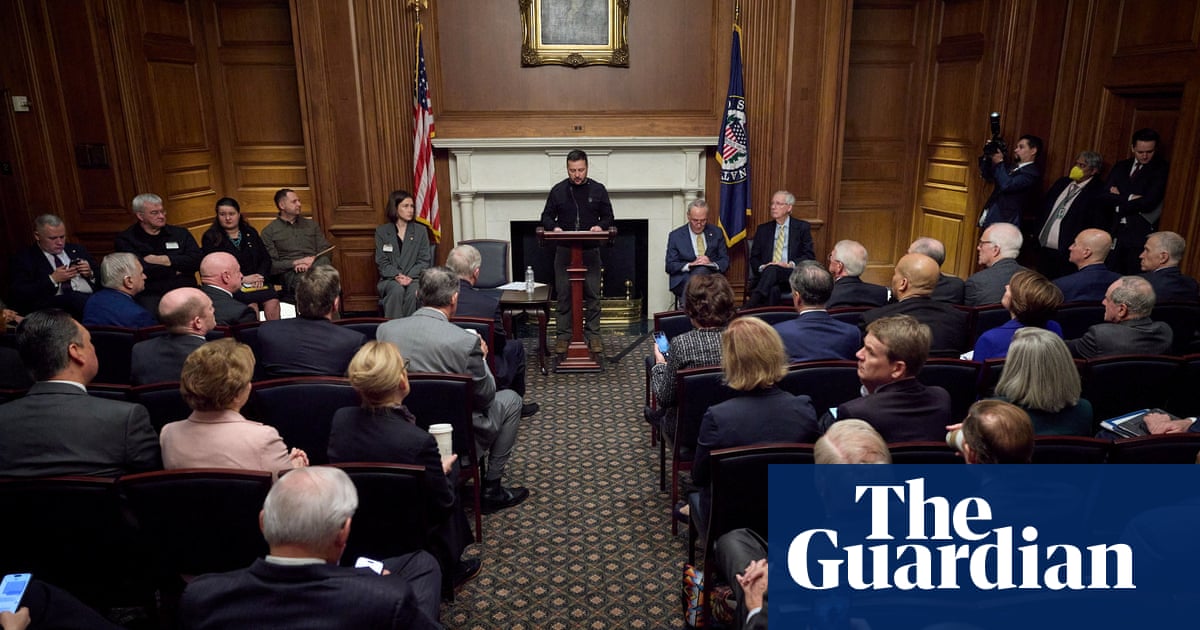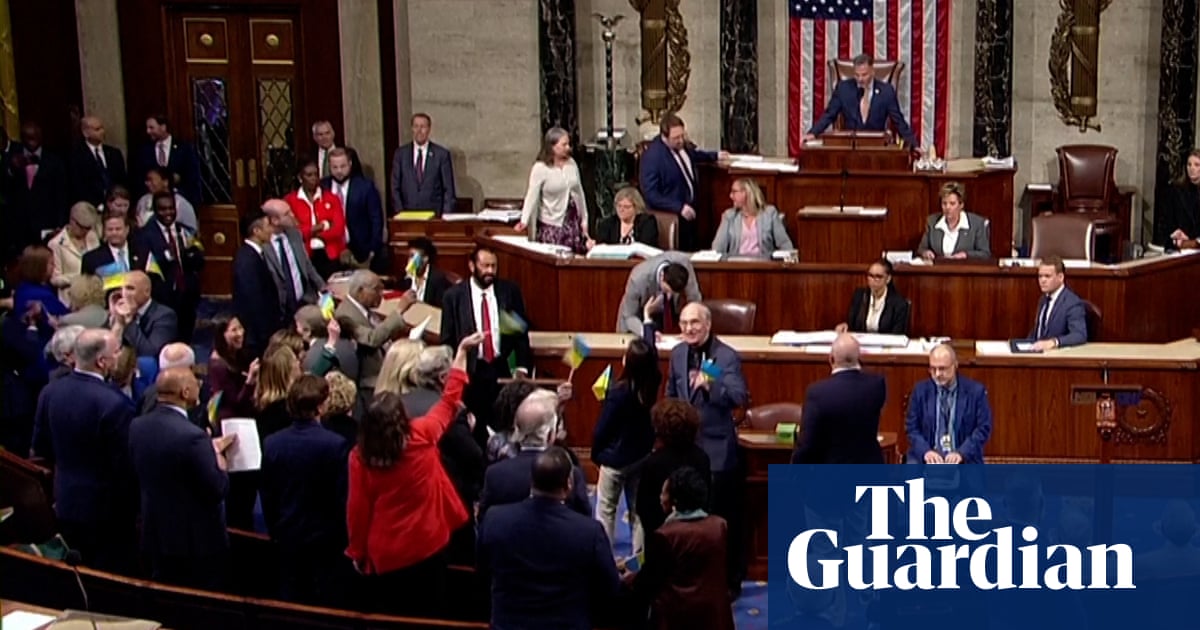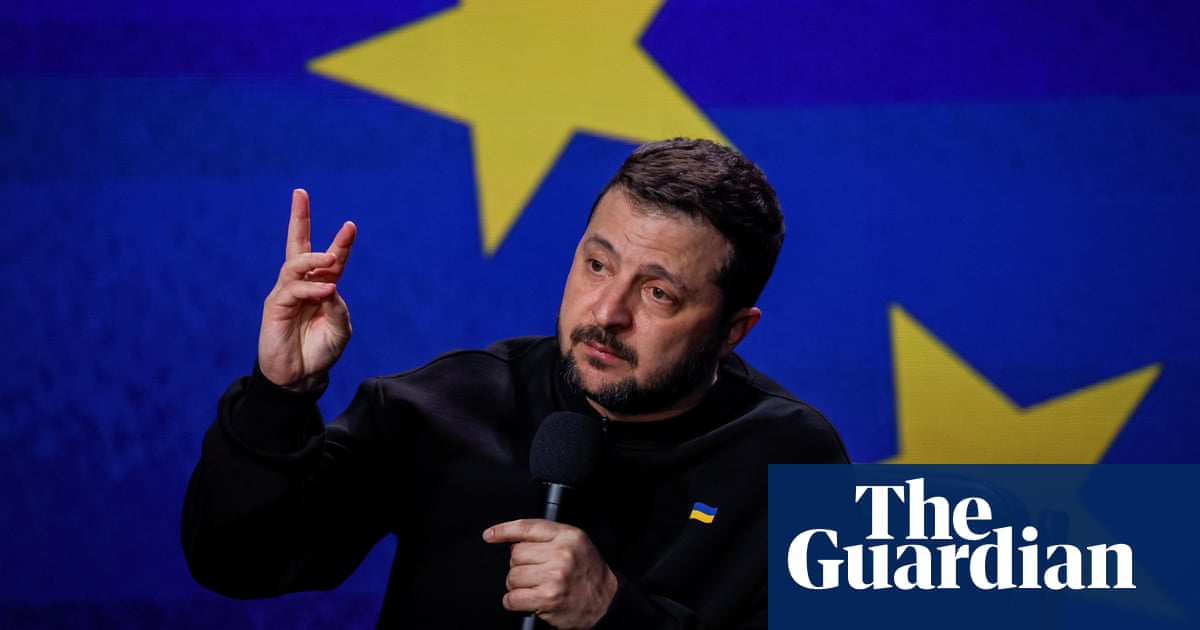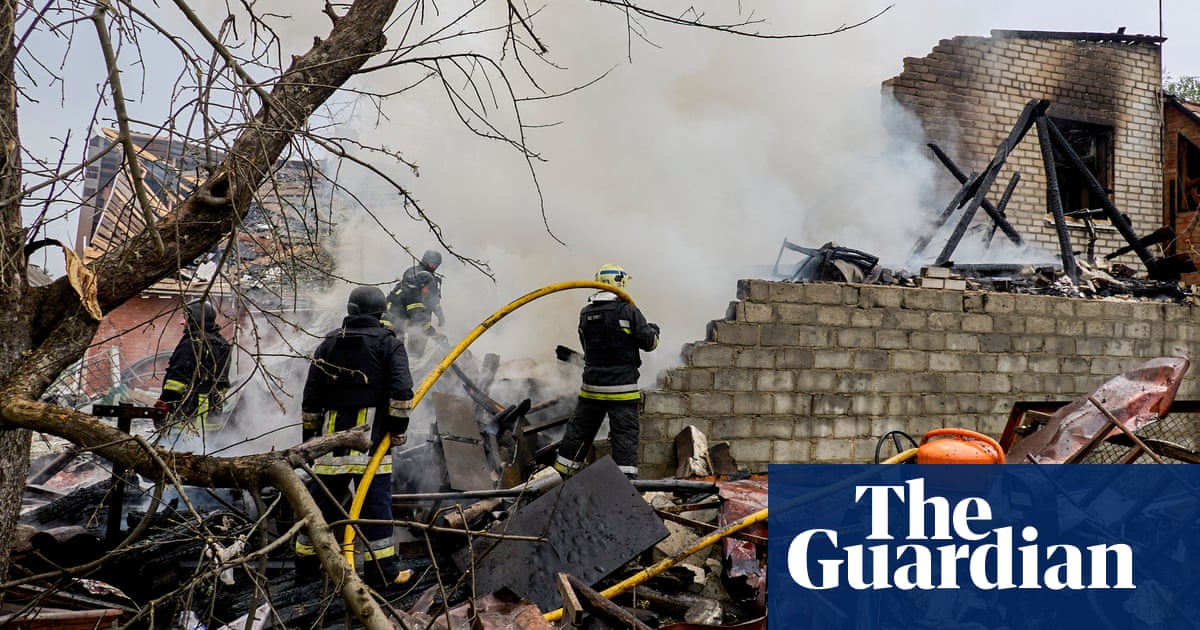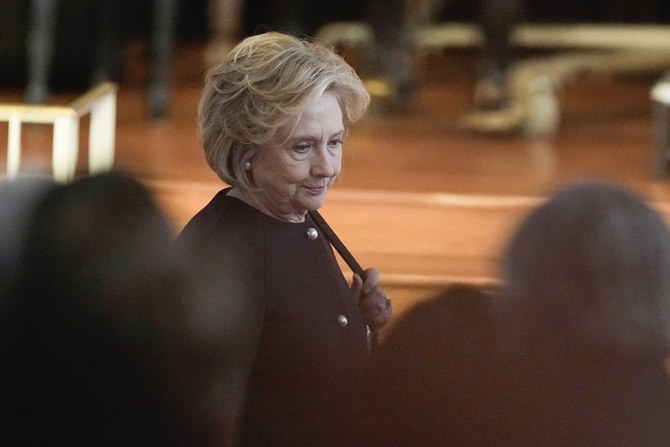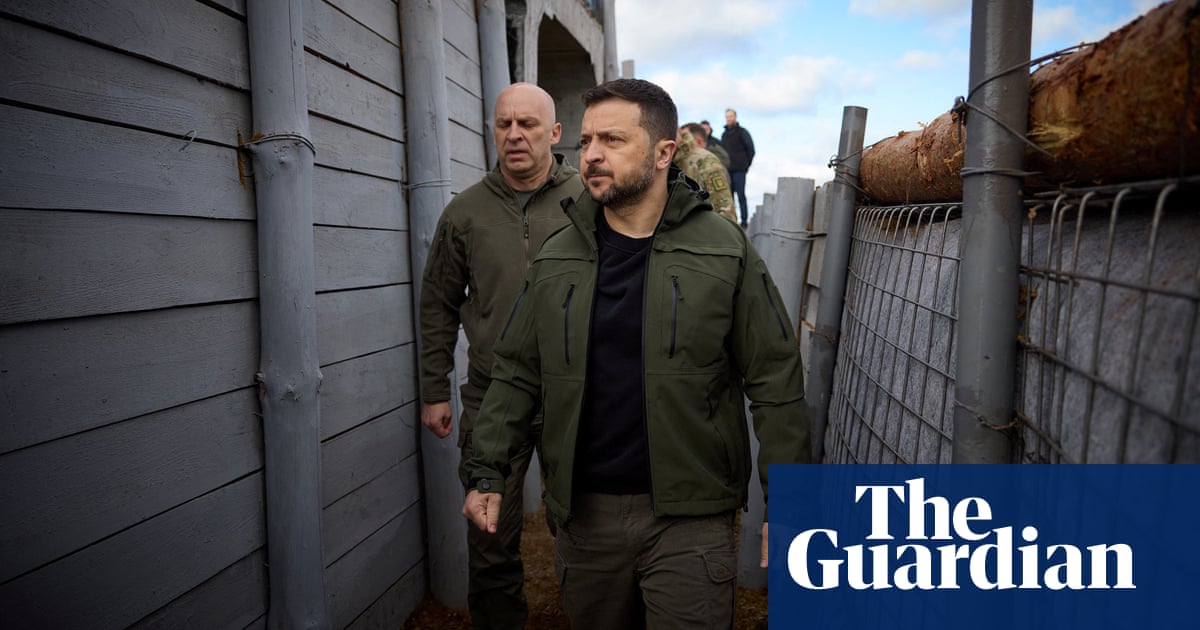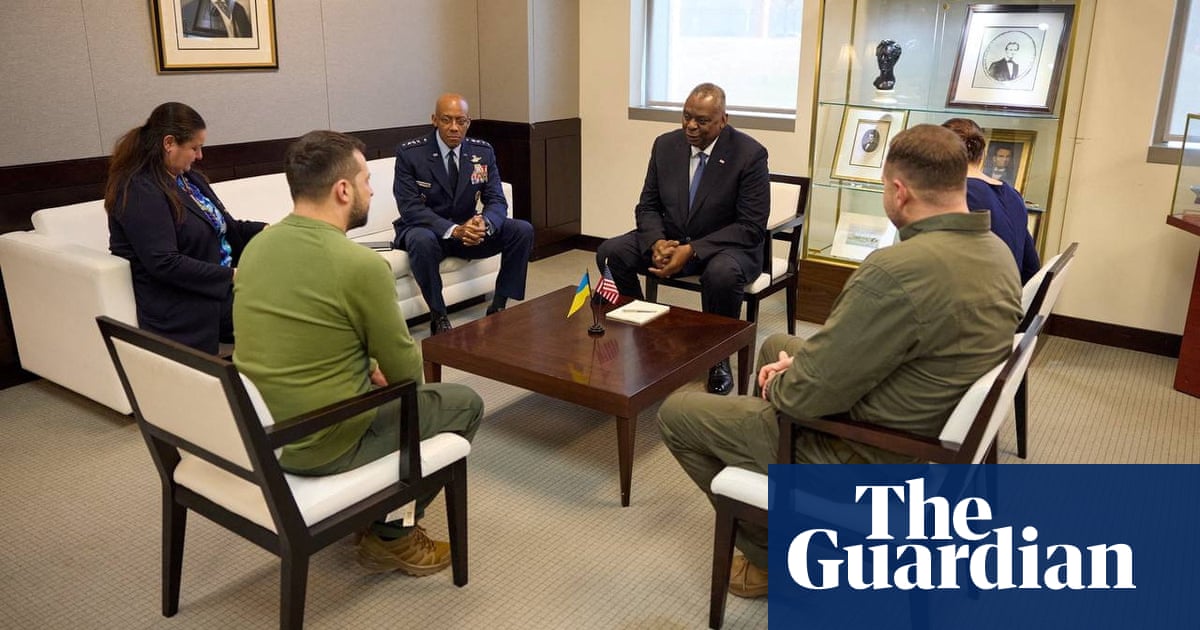
Ukraine’s president, Volodymyr Zelenskiy, has flown to Washington DC in an attempt to rescue a critical $61bn military aid package, while the UK separately hinted that it could increase the value of the arms, ammunition and training that it donates to Kyiv.
Zelenskiy is due to meet the US president, Joe Biden, on Tuesday, as well as US senators and the Republican House speaker, Mike Johnson, at a time when Congress is holding up future American financial support for Kyiv’s war effort.
Shortly after arriving in the US capital, Zelenskiy said Ukraine was counting on the US, and that delays to future rounds of military aid were “dreams come true” for the Russian president, Vladimir Putin.
“Putin must lose,” Zelenskiy said in a speech at the National Defense University in Washington DC. “You can count on Ukraine, and we hope just as much to be able to count on you.”
The Ukrainian leader was introduced by the US defence secretary, Lloyd Austin, who warned there was a danger in failing to provide long-term financial support to Kyiv. “If we do not stand up to the Kremlin’s aggression today, if we do not deter other would-be aggressors, we will only invite more aggression, more bloodshed, and more chaos,” Austin said.
But there is profound uncertainty about future US funding. Republican senators blocked an emergency aid package last week primarily for Ukraine and Israel after conservatives complained at the exclusion of immigration changes they had demanded as part of the package.
Britain is also reviewing its future military aid commitment to Ukraine, currently held at £2.3bn a year. On Monday, one UK defence source suggested the budget for the year starting in April 2024 could be “broadly similar, perhaps even higher”.
No final decision had been taken, the source added, although a meeting of the UK’s national security council this week is expected to discuss the issue of future support for Kyiv against the backdrop of American uncertainty.
Grant Shapps, the UK defence secretary, said at a maritime support event for Ukraine that the UK would make an announcement of its future military aid budgets “when we are ready”, but also emphasised that Britain and other western nations should be prepared to take a lead.
“I actually genuinely do think Europe needs to step up and look after its own security. I believed this for a very long time, Ukraine aside. We can’t carry on expecting the US to always ride in to the rescue of Europe,” Shapps said.
Britain is currently the third-largest contributor of lethal aid to Ukraine after the US and Germany, which announced last month that it would double its annual contribution to €8bn (£7bn) in 2024. But both are dwarfed by the US, which has provided $44.2bn (£35.2bn) in military assistance since Russia invaded in February last year.
Ukraine failed in an attempt to break through Russia’s lines during 2023 and the increasing expectation is that the two countries could be embroiled in a protracted conflict, each reliant on the support of allies and their respective industrial bases to produce more ammunition and weaponry.
Shalanda Young, the White House’s director of the Office of Management and Budget, said last week that the Pentagon had used up 97% of the Ukraine allocations previously authorised by Congress, making the need for legislators in both houses to approve a new funding package relatively urgent.
Zelenskiy is due to meet US senators at 9am on Tuesday at the invitation of both the Democrat majority leader, Chuck Schumer, and the Republican minority leader, Mitch McConnell.
Last week, a closed-doors meeting on Ukraine for senators descended into acrimony after a group of Republicans walked out, arguing that there was new information about the situation in the country and that their demands for action on the situation at the US-Mexico border were being ignored.
Zelenskiy will not meet any members of the House, but will instead see Mike Johnson, the newly elected Republican speaker of the House, privately on Tuesday. Johnson is considered relatively sceptical on Ukraine, but said he was “confident and optimistic” that extra funding could be agreed with the help of White House concessions.
“What we’ve said is that if there is to be additional assistance to Ukraine – which most members of Congress believe is important – we have to also work on changing our own border policy,” he told the Hill at the end of November.




